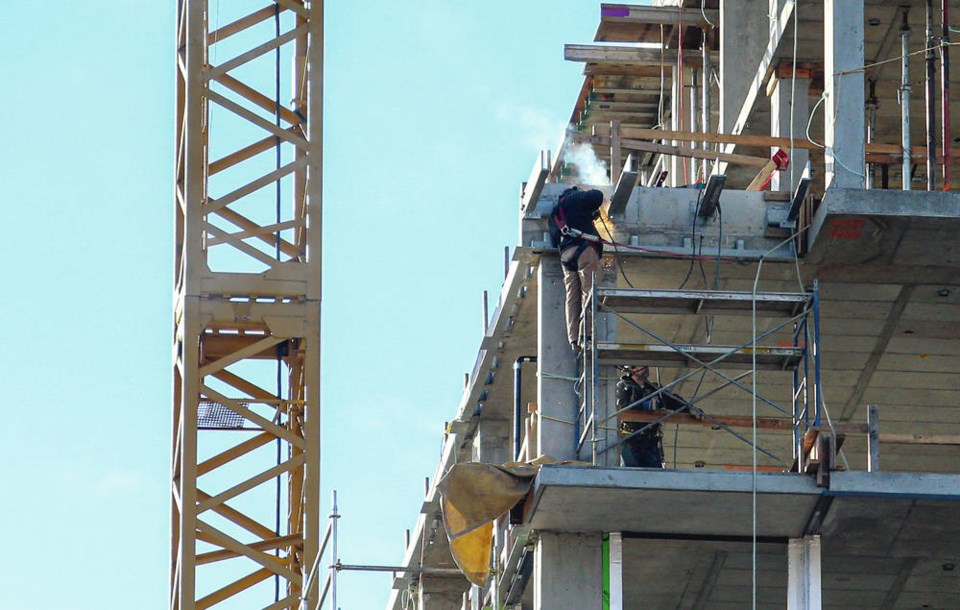DAVID THOMPSON
There has been a lot of chatter lately about community associations and their land use committees.
Does massive city funding make them lap dogs to a pro-development city council? Or do they really have an agenda to halt any form of housing other than expensive single-family homes?
Are they perhaps all in the pockets of big developers? Or maybe they are connected with one of the city’s council slates — Together Victoria (left), or NewCouncil (right), or whatever the latest one is?
It seems that whatever side of development issues or municipal politics you look at, there is a conspiracy theory ready and waiting, mainly on talk radio and social media.
But maybe it’s time to go beyond hot takes and angry fantasies, and look into the reality.
Community association boards are unglamorous groups of well-meaning and often overworked volunteers. There is nothing secretive or sinister about their structure. You can attend their meetings.
The boards have community association land use committees (CALUCs). The CALUC role within the city’s development review process is clear. A CALUC holds a public meeting where a developer (homeowner or company) presents their proposal, and community members ask questions and provide their views. The CALUC volunteers then summarize the meeting in a report, and provide it to the city.
It’s that simple.
The Big Secret is that there is no big secret. Disappointing, I know.
Oh, and the “massive” city funding? It’s actually a few hundred dollars to cover expenses — meeting room costs, the PowerPoint projector and screen, photocopying and the like.
A well-run CALUC welcomes all residents to meetings, regardless of their views on development or local politics. It runs a civil, professional meeting where comments are summarized accurately, and the report provided to the city is unbiased (as near as possible).
Not all CALUCs are stacked by people with a strong bias.
However, some can be. And some people might want to take over a CALUC, in order to advance their own agenda. Likely, those people are the ones who get many of their “facts” from talk radio and social media.
And yet the biggest downside risk of a biased CALUC isn’t to the city or developers, but to the neighbourhood.
City staff and elected officials are not dummies. They understand when they are getting biased reports from a CALUC, and they give such reports less weight. The city has a lot of material to consider — development proposals, staff analysis, emails and letters, presentations at council meetings, and so on.
Those stacking or planning to take over CALUCs in order to bring a certain perspective on development aren’t fooling anyone at the city. The only people they are fooling are community members. A few of those community members may be thinking: “My people are on CALUC, and now council will decide things the way we want them to!”
Uh, no. Council will be more likely to ignore what your biased CALUC says.
Many CALUCs (and community associations) are overpopulated by single-family home owners, older residents, white people, etc. That’s who has volunteered. That said, good CALUCs try to recruit a diverse group of volunteers. But, as many non-profits find, that recruitment can prove challenging.
Does the composition of CALUCs make them biased? It really depends on the character of the individuals involved.
There’s a straightforward way to find out. Attend a CALUC meeting in your neighbourhood, or a neighbourhood you want to live in. Listen to what people are saying, particularly the committee (CALUC) members. Speak up, whether you support or oppose a development. Then read the CALUC report to the city, to see if they accurately conveyed what was actually said in the meeting.
If you think they need to do a better job, think about volunteering to join them.
No, not everyone has the time. But if you indulge in TV or Netflix — or talk radio or social media — then you might.
If so, consider giving up a few hours a month of fiction in order to find out how community meetings and city development really work.
And if harried CALUC volunteers seem to do a good job, maybe also consider joining them.
David Thompson is a community volunteer who sits on the Fairfield Gonzales Community Association Land Use Committee (CALUC). The views above are his own.



